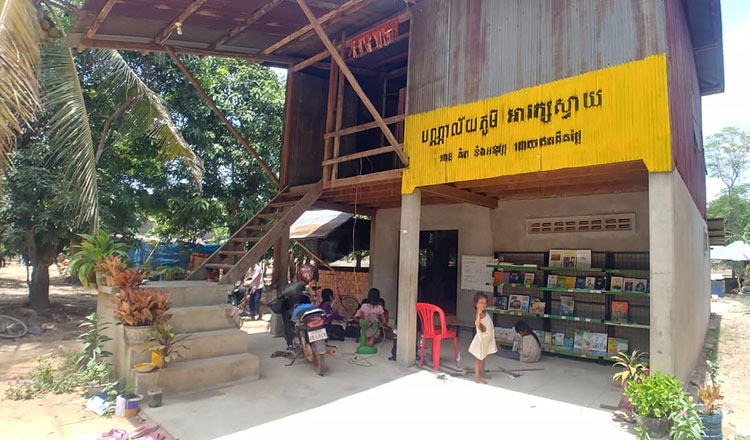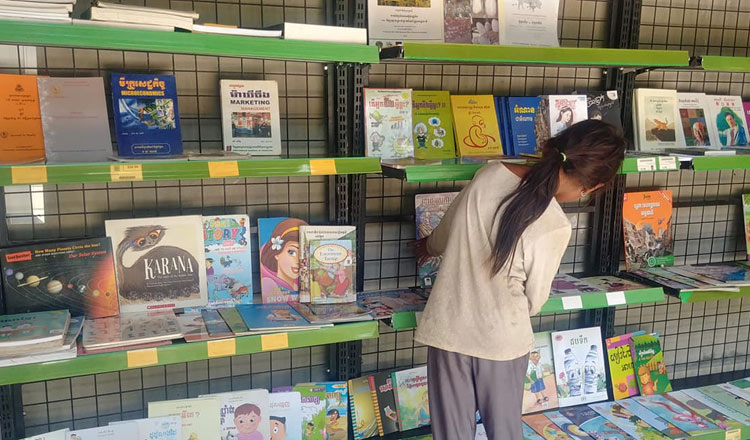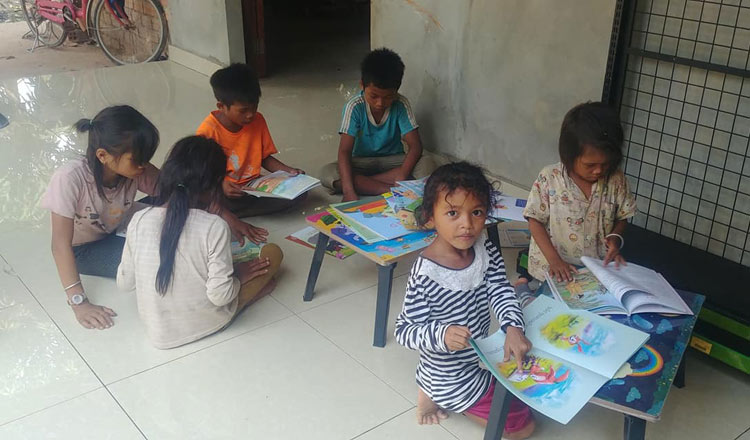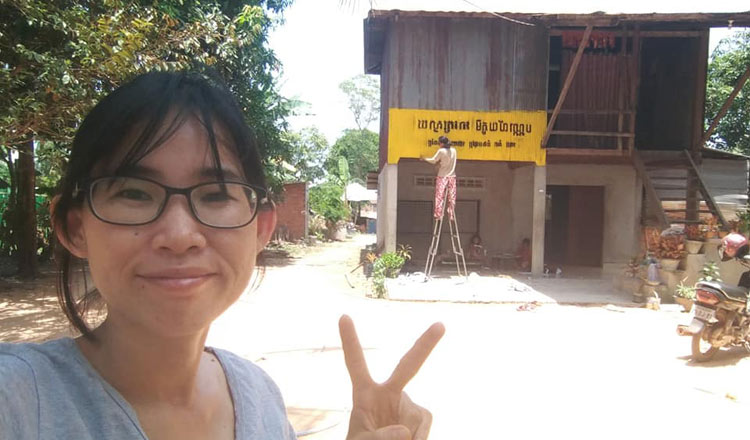Promoting reading through Home library
For Soth Bopha, reading has always been an instrument she uses to explore the world. She sees books as magical tools which can transform people’s lives and create a platform for them to understand more about the outside world. Therefore, since Bopha was young, encouraging people to read books through her part-time job as a mobile librarian had always been her favourite activity.
Currently, Bopha continues her mission by creating her very own home library in Arak Svay village in Siem Reap City’s Nokor Thom commune to strengthen a reading culture among children and villagers. Her work also went viral on social media as people admired her devotion to her cause. Som Kanika had an exclusive interview with the reading advocate, Soth Bopha.
GT2: How did you come up with the new initiative of creating a home library for children in your village and encourage them to begin reading, especially amidst the COVID-19 pandemic?
Soth Bopha: In the province, education is a bit different from the city. Most of the children here are not encouraged to read but instead work or do chores. They also don’t see much value in books. Seeing this provokes me to think that we as a senior citizen, should do something and be role models for them. The Arak Svay home library was just a small idea and project, created to promote reading; nurturing them to love books in our village.
I think this idea began when I was 24 years old. Back then, I used to volunteer in the community every weekend as a mobile librarian and bring books on the truck and distribute to children to read in their free time. It’s a fact children love playing but they could choose to play with the book; it’s also a fun activity. That job as a mobile librarian inspired me to build this. Now I’ve created a home library at the age of 29.
GT2: In order to create a library, you need to have a budget as well as book donors. Where do you find all of these things and how does the home library function and operate?
Soth Bopha: Before creating this library, I actually reached out for donations and received assistance and small sponsorship from some villagers and friends who share common goals and objectives. However, for the rest I used my own money. A lot of the money was spent on books, studying materials, chairs, tables, printer and Wi-Fi. After news about the library spread, many people on social media and elsewhere showed great support for the initiative and around 100 books were sent to my library every week.
The home library began its operations this year on 8th May. It’s not huge but it’s a warm, small space in my home. The Home library opens every day from Monday to Friday.It is free of charge and welcomes everyone, not specifically children. I also plan to promote this among adults and people in general because everyone deserves an equal opportunity to read.
However since COVID-19, owing to the small space, I allow only a maximum of 10 children to come and read at a time. We practice social distancing as a preventive measure to protect ourselves from the virus. Others are welcome to borrow the books and read them at home.
GT2: What do you think about the future of Home Library?
Soth Bopha: The home library will hopefully last a long time. It depends on whether people and children in my community still value the idea of reading.
My future plan with the Home Library initiative is that I want to operate libraries in every village in the province. It doesn’t have to be fancy. All you need is some creative ideas to make it work. I am also looking forward to cooperating with other organisations who share the same goals of promoting reading, especially for children.
GT2: What are the challenges you see with the reading culture and education in the province?Soth Bopha: Through my observation, I can see that not only we don’t have a reading culture here, we also lack reading materials. As you can see, we have a lot of schools in the provinces but not many of them have a proper library and enough books and reading material for students to pursue their research and self-study. I think studying without reading is an inefficient study.
Moreover, in this age of technology where you find everyone owns a smartphone, even children, everything is at their fingertips. This makes people have less patience to pick up a book and read. However, we should remember books remain a source of comprehensive and concrete documents, stories and history that stands the test of time.
Credited: Khmer Times










